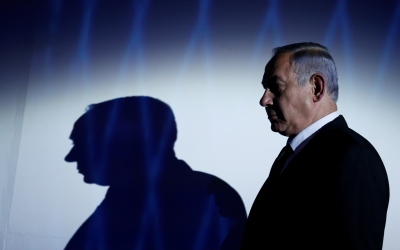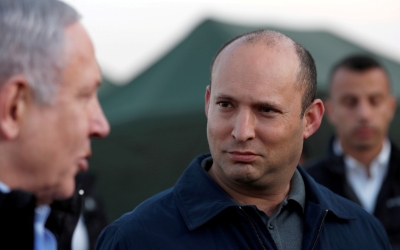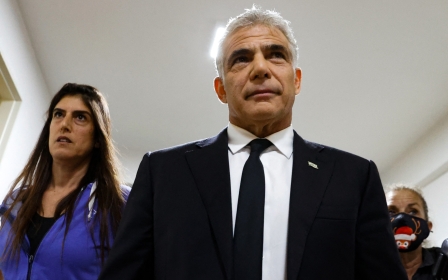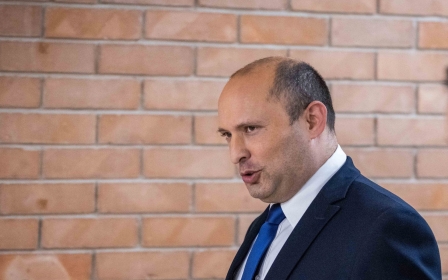Israel: Netanyahu's fate hangs in the balance as Knesset votes on new cabinet
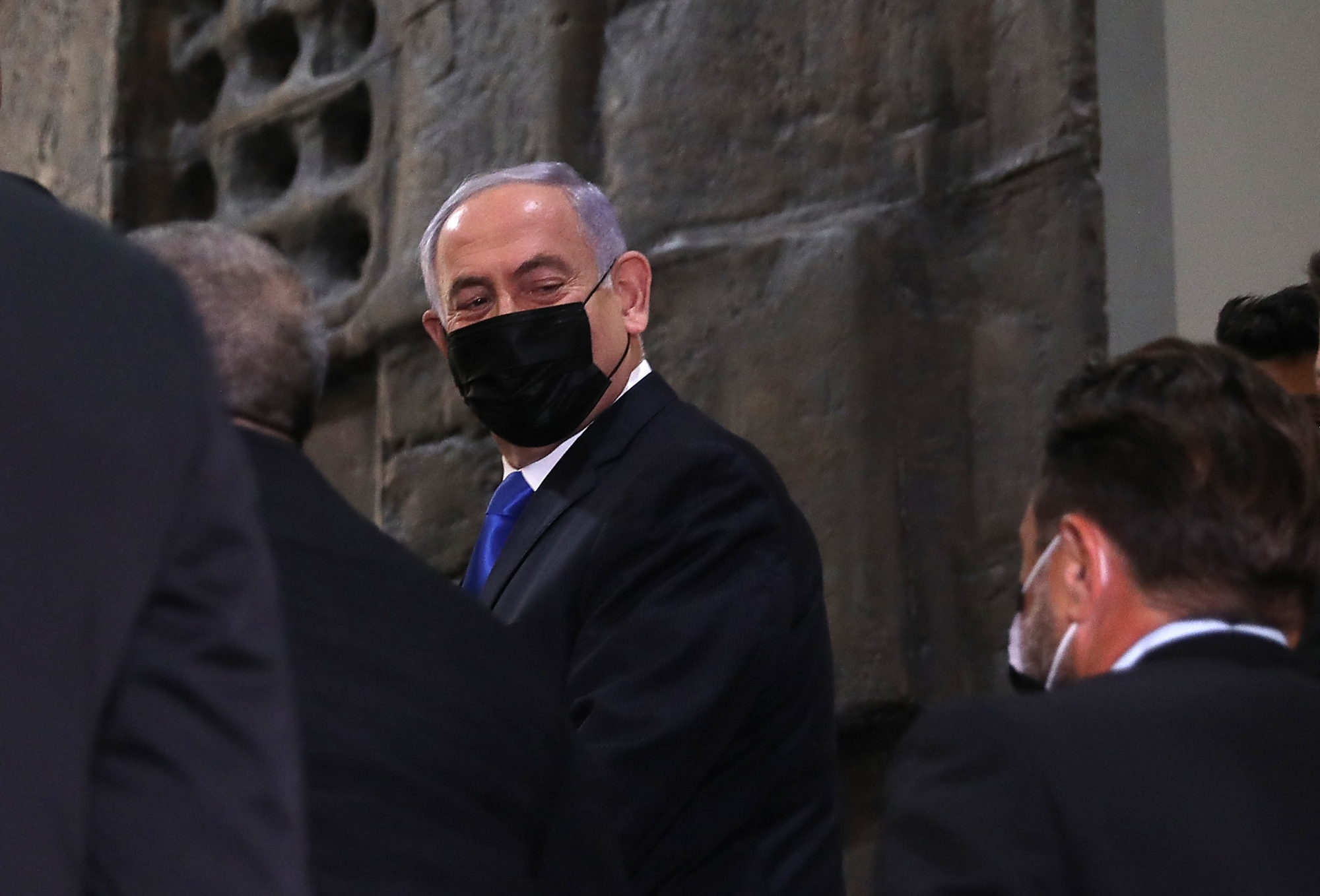
Israel's parliament, the Knesset, opened a special session on Sunday to vote on whether to approve a fragile "change" coalition, which could oust longstanding Prime Minister Benjamin Netanyahu after more than 12 years in power.
Hailed as "King Bibi" by his far-right supporters and condemned as the "crime minister" by his critics, the hawkish Netanyahu has long been the dominant figure in Israeli politics.
The coalition seeking to unseat the 71-year-old premier aims to replace him with his former protege turned rival, far-right, pro-settlement Jewish nationalist and former tech millionaire Naftali Bennett, 49.
The disparate anti-Netanyahu bloc was cobbled together by the secular centrist Yair Lapid, a former TV presenter, and includes eight parties, ranging from Bennett's Yamina party to left-wing Labour and lawmakers from the Palestinian community in Israel.
Knesset convened at 4pm (1pm GMT) to approve the government in a confidence vote that will follow speeches and a debate that could take about four hours.
The crunch vote will either terminate Netanyahu's record time in office or, in case of a last-minute upset, return Israel to a stalemate likely to trigger a fifth general election since 2019.
Bennett and Netanyahu spoke in the Knesset before the vote.
"Thank you Benjamin Netanyahu for your lengthy and achievement-filled service on behalf of the state of Israel," Bennett said in a speech at the start of the session, before iterating his strong anti-Iran stance amid shouts of "shame" and "liar" from Netanyahu loyalists.
"Renewal of the nuclear agreement with Iran is a mistake, an error that would again grant legitimisation to one of the darkest and violent regimes in the world," Bennett said. "Israel will not allow Iran to equip itself with nuclear weapons."
Netanyahu, meanwhile, vowed in his speech that he would stay in politics.
"We'll be back soon," he told the Knesset. "If it's our destiny to be in the opposition, we'll do so with our heads high until we take down this bad government and return to lead the country our way."
Netanyahu, who is battling corruption charges in an ongoing trial he dismisses as a conspiracy, has been the dominant Israeli politician of his generation, having also served a previous three-year term in the 1990s.
But analysts worry that members of the ragtag “change” coalition have little in common besides their desire to oust Netanyahu.
A fragile alliance
On Saturday night, around 2,000 protesters rallied outside his official residence, waving "Bye Bye Bibi" signs and celebrating what they hoped would be his departure from office.
"For us, this is a big night, and tomorrow will be even a bigger day. I am almost crying," one protester, Ofir Robinski, told AFP.
"We fought peacefully for this, and the day has come."
"A morning of change," promised a Sunday morning tweet by Lapid, who would serve as foreign minister under the coalition deal before taking over the premiership in 2023, provided the wobbly alliance survives that long.
The anti-Netanyahu bloc spans the political spectrum, including three right-wing, two centrist and two left-wing parties, along with an Islamic conservative party.
The improbable alliance emerged in the wake of a wave of violent Israeli repression of Palestinian protesters in Israel, occupied East Jerusalem and the West Bank, while the Israeli army and the Palestinian Hamas movement engaged in an 11-day war that led to the death of 248 Palestinians in Gaza and 12 people in Israel.
"We will work together, out of partnership and national responsibility - and I believe we will succeed," Bennett, a former defence minister under Netanyahu, said Friday.
Challenges ahead
Netanyahu, who long ago earned a reputation as Israel's ultimate political survivor, has tried to peel off defectors that would deprive the nascent coalition of its wafer-thin legislative majority in the 120-seat parliament.
He accused Bennett of "fraud" for siding with rivals, and angry rallies by the premier's Likud party supporters, as well as threats, have resulted in security being bolstered for some lawmakers.
Netanyahu's bombastic remarks as he sees his grip on power slip have drawn parallels at home and abroad to former US president Donald Trump, who described his election loss last year as the result of a rigged vote.
Netanyahu has called the prospective coalition "the greatest election fraud in the history" of Israel and warned of the threat of a "dangerous" “left-wing” government.
The premier's opponents have accused him and his allies of stoking tensions to cling onto power in a "scorched-earth" campaign.
If Netanyahu loses the premiership, he will not be able to push through parliament changes to basic laws that could give him immunity on charges he faces in his corruption trial.
Netanyahu’s years in power have also been marked by the expansion of settlements, illegal under international law, in the occupied West Bank and East Jerusalem.
Recent days have seen Israeli police further crack down on Palestinian protests over the planned expropriation of families from their homes in East Jerusalem to make way for Jewish-Israeli settlers.
Meanwhile, right-wing anger has grown in Israel over last week's postponement of a right-wing, Jewish-nationalist march through flashpoint areas of Jerusalem’s Old City, including close to the al-Aqsa mosque complex.
The "March of the Flags" is now slated for Tuesday, and the agitation surrounding it could represent a key initial test for a new coalition government.
Middle East Eye delivers independent and unrivalled coverage and analysis of the Middle East, North Africa and beyond. To learn more about republishing this content and the associated fees, please fill out this form. More about MEE can be found here.


